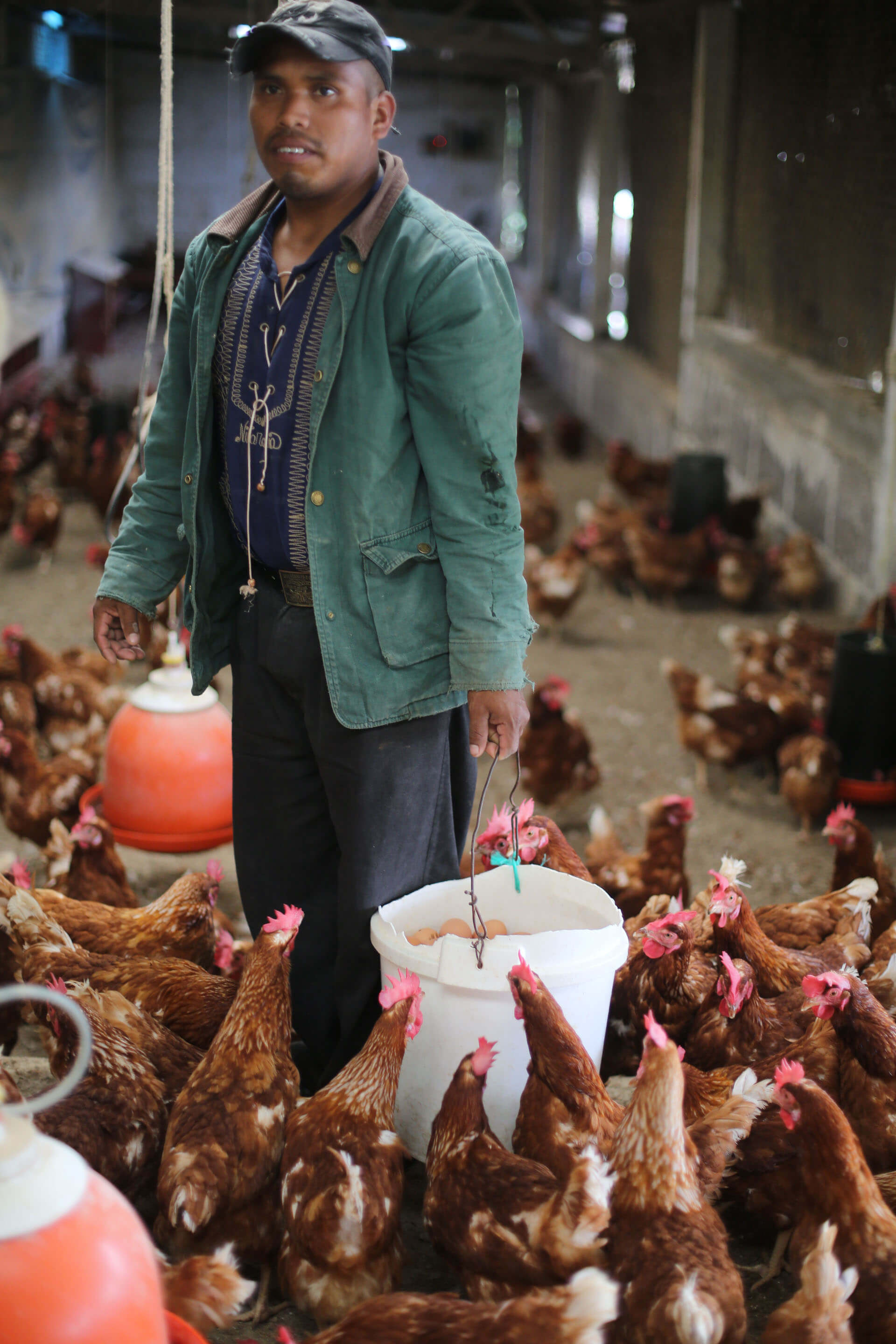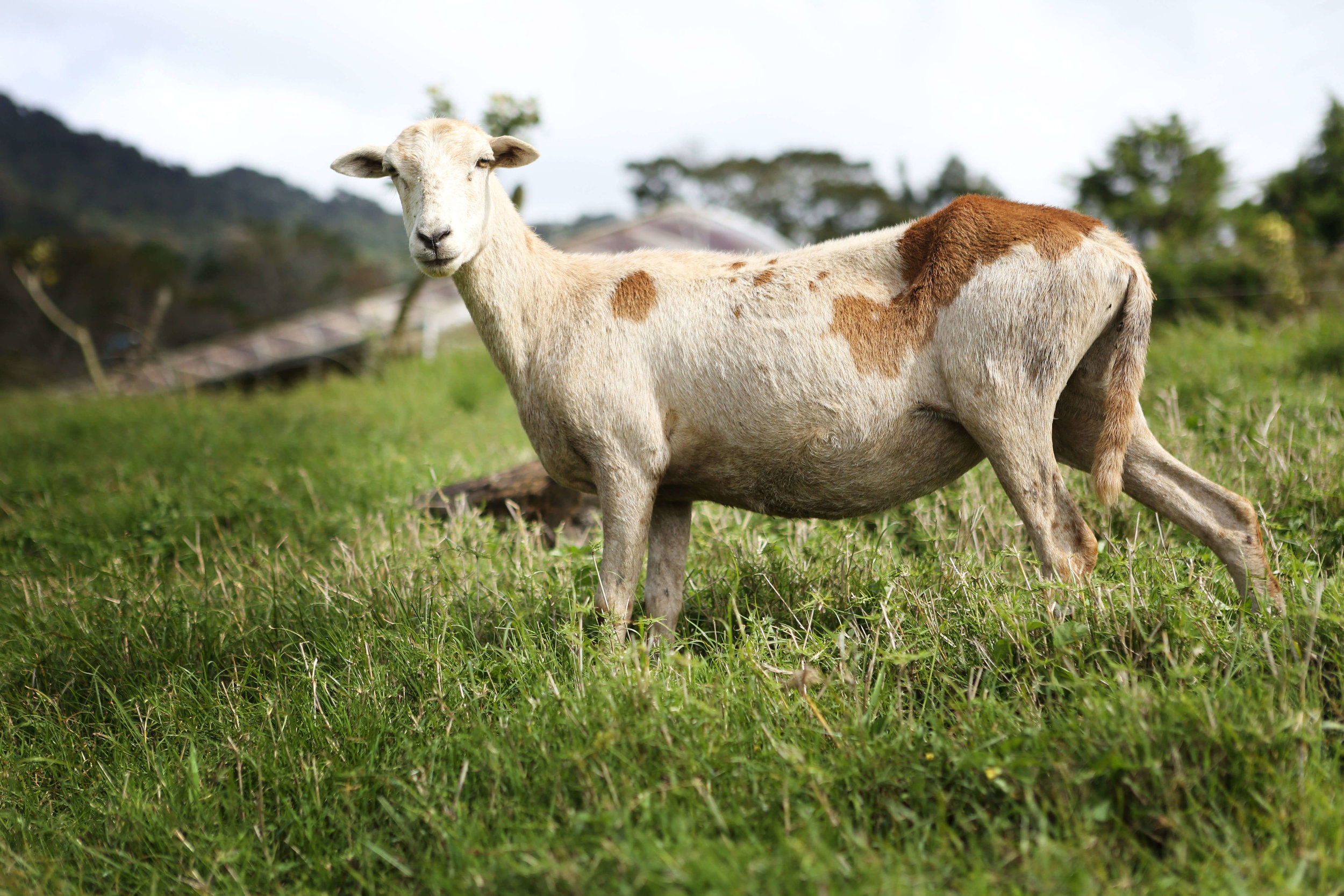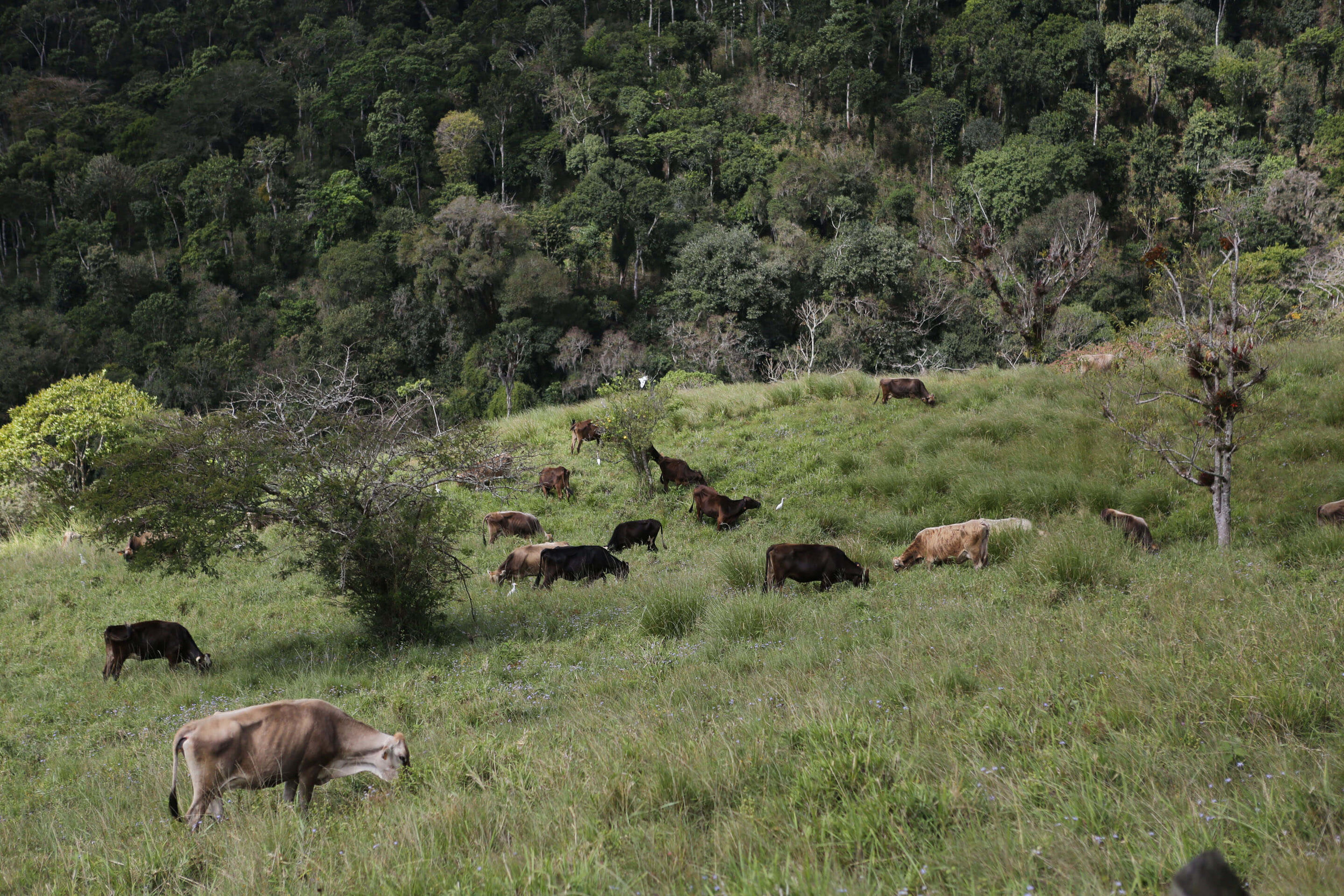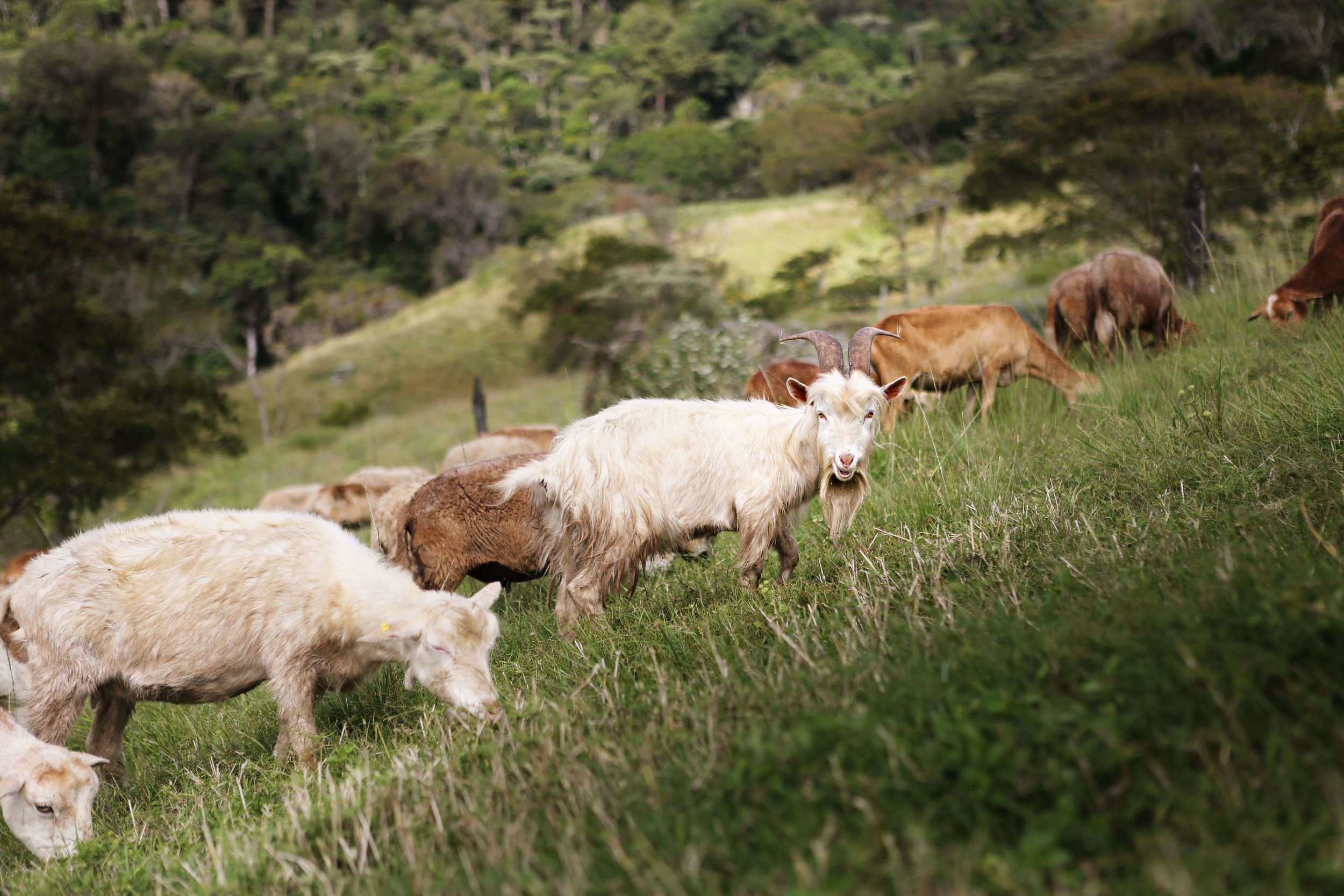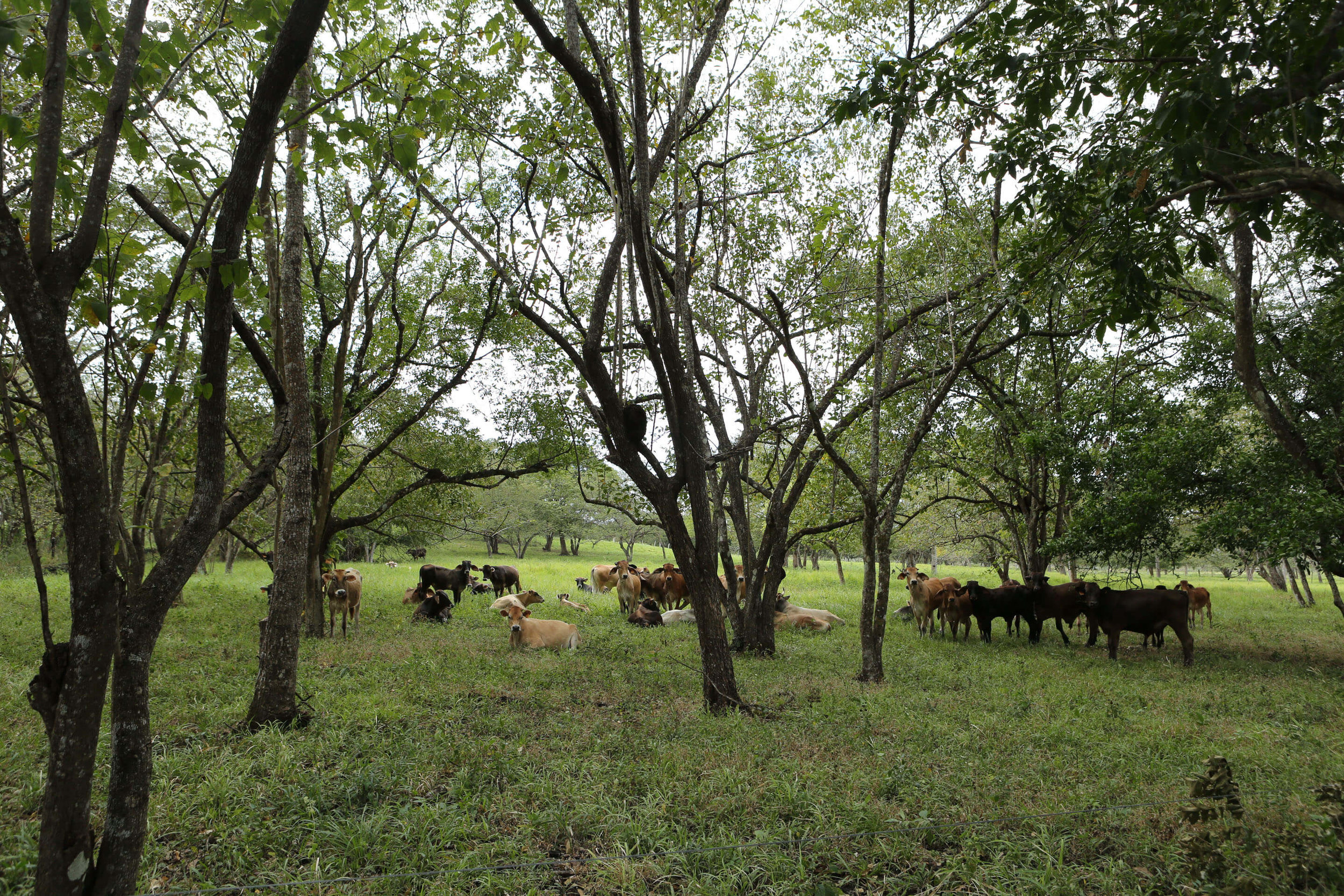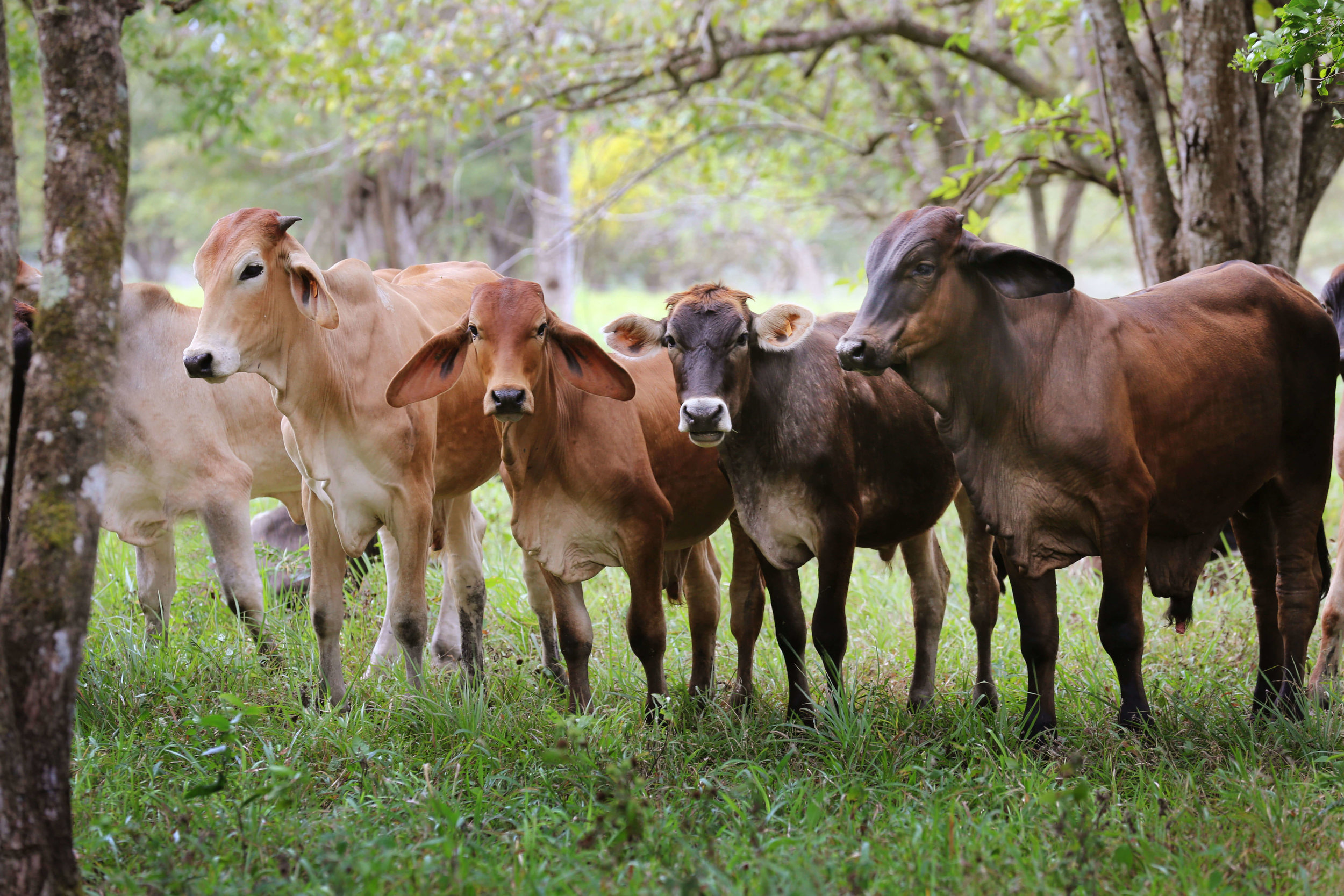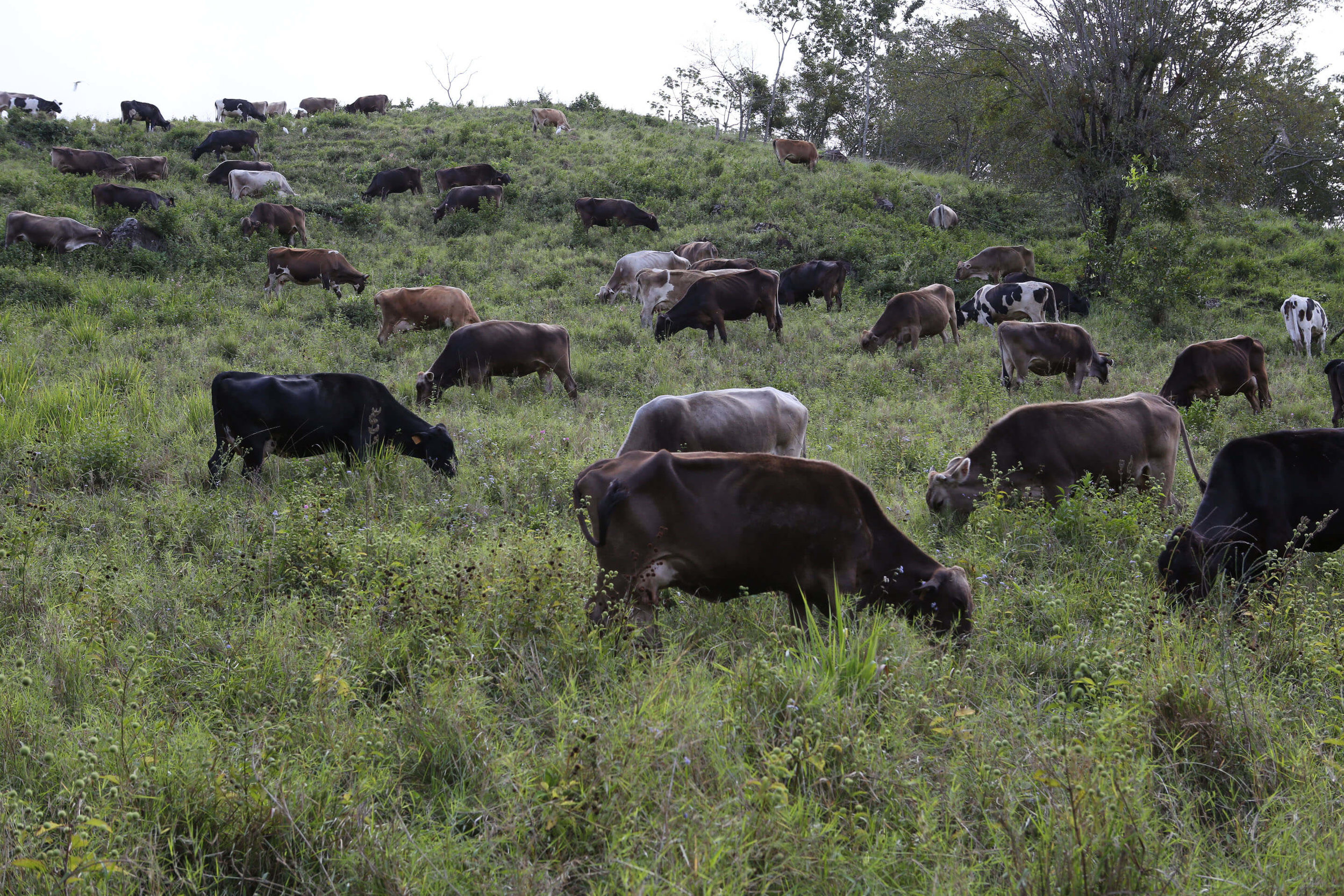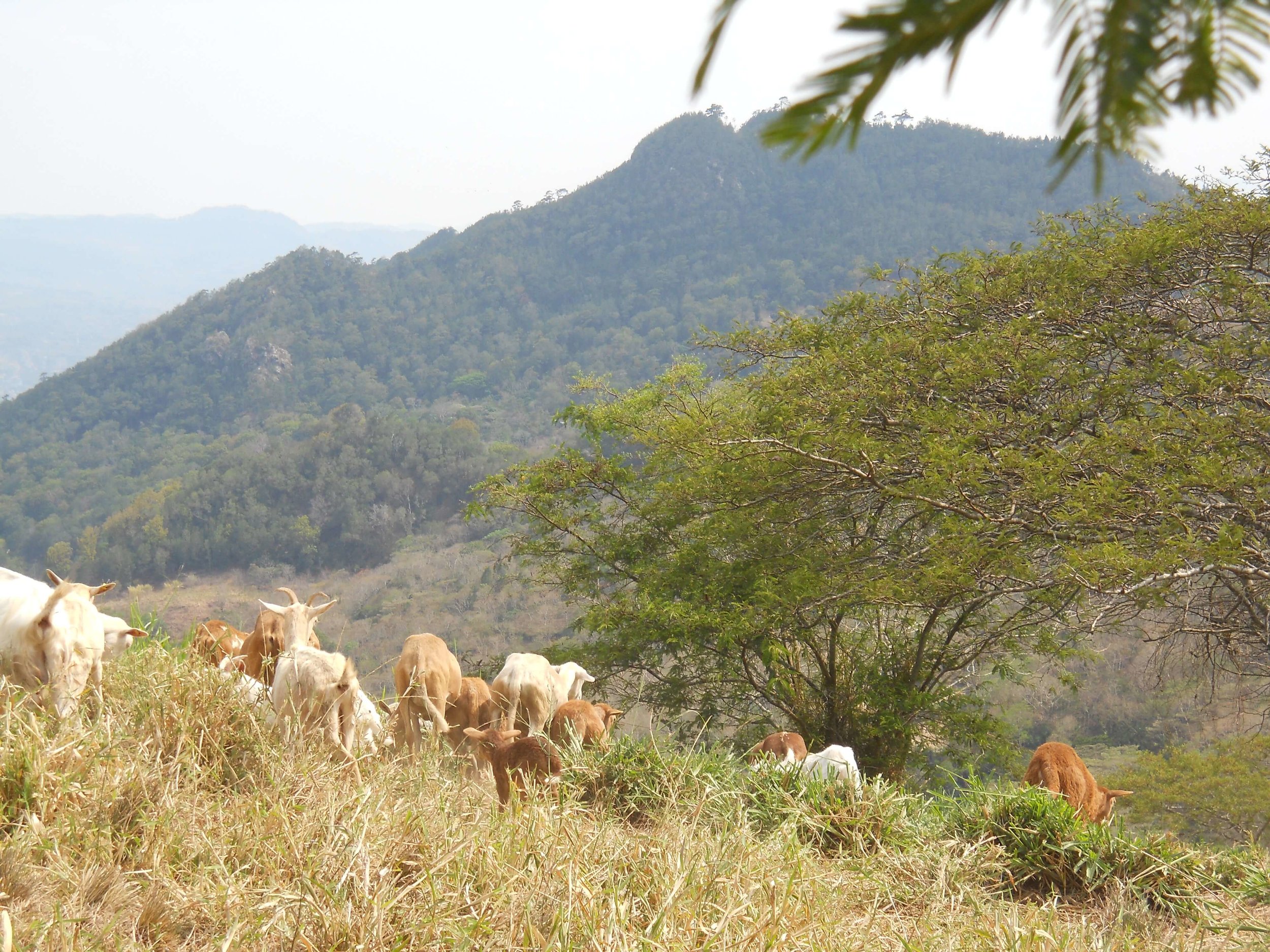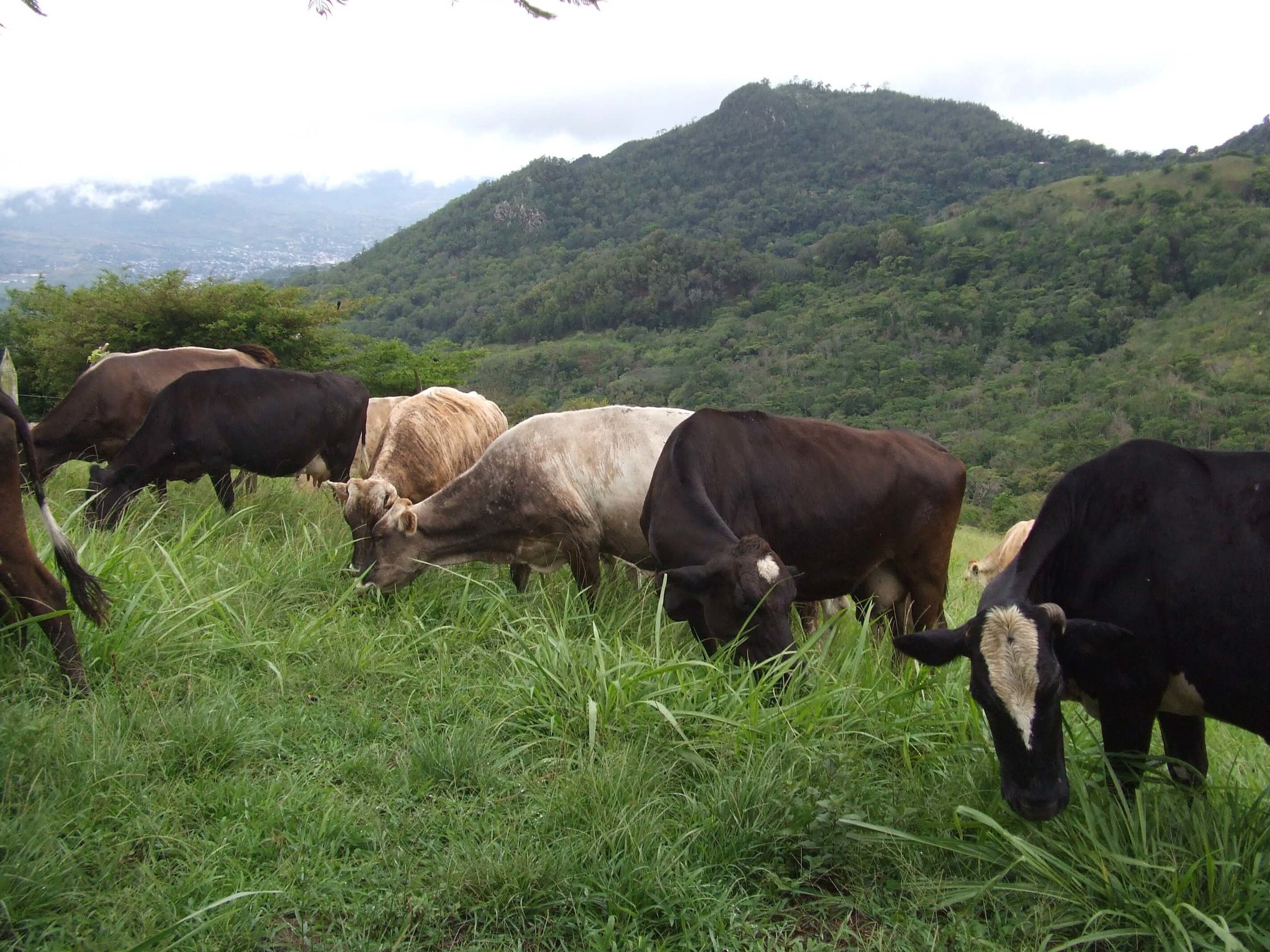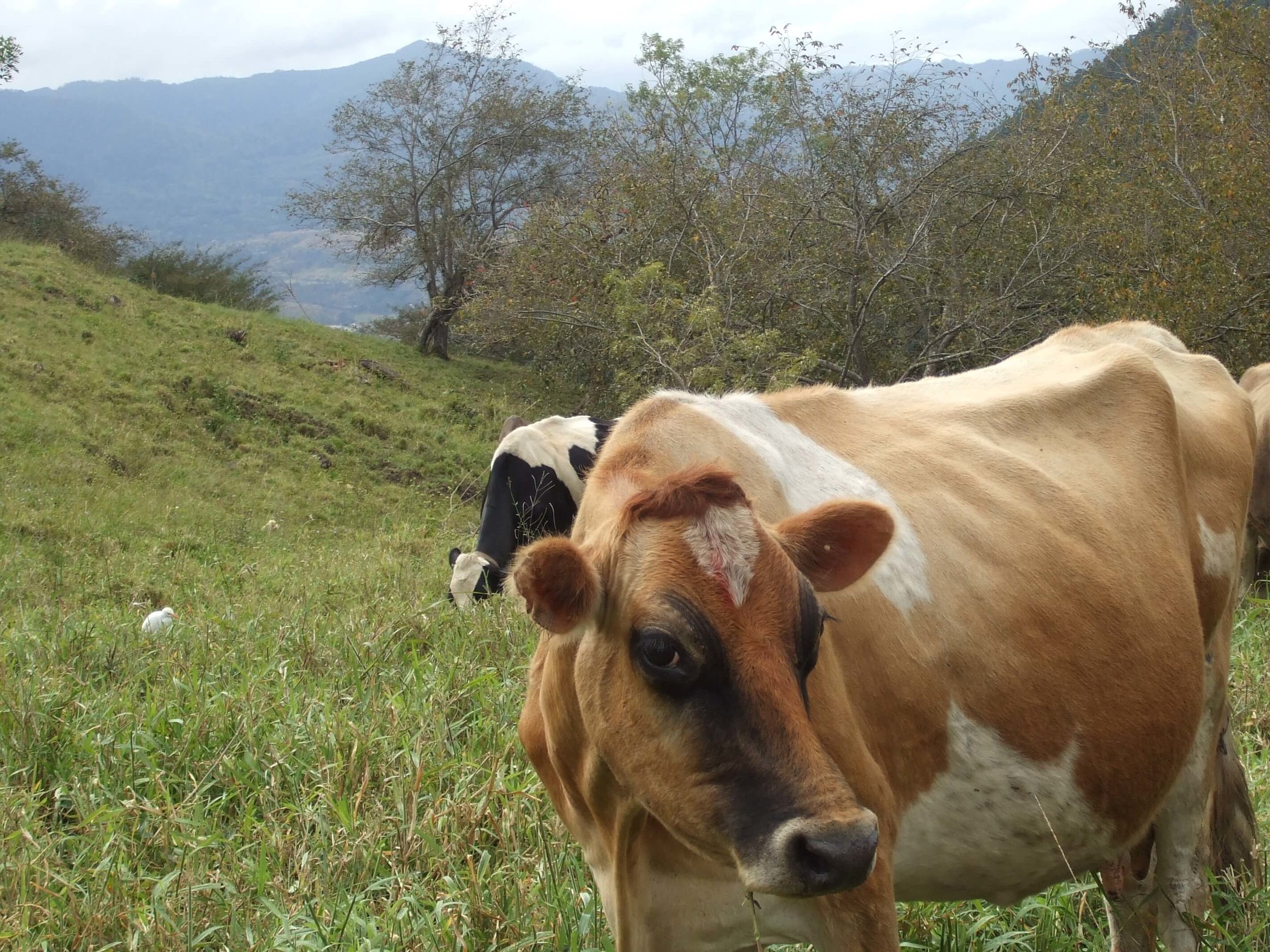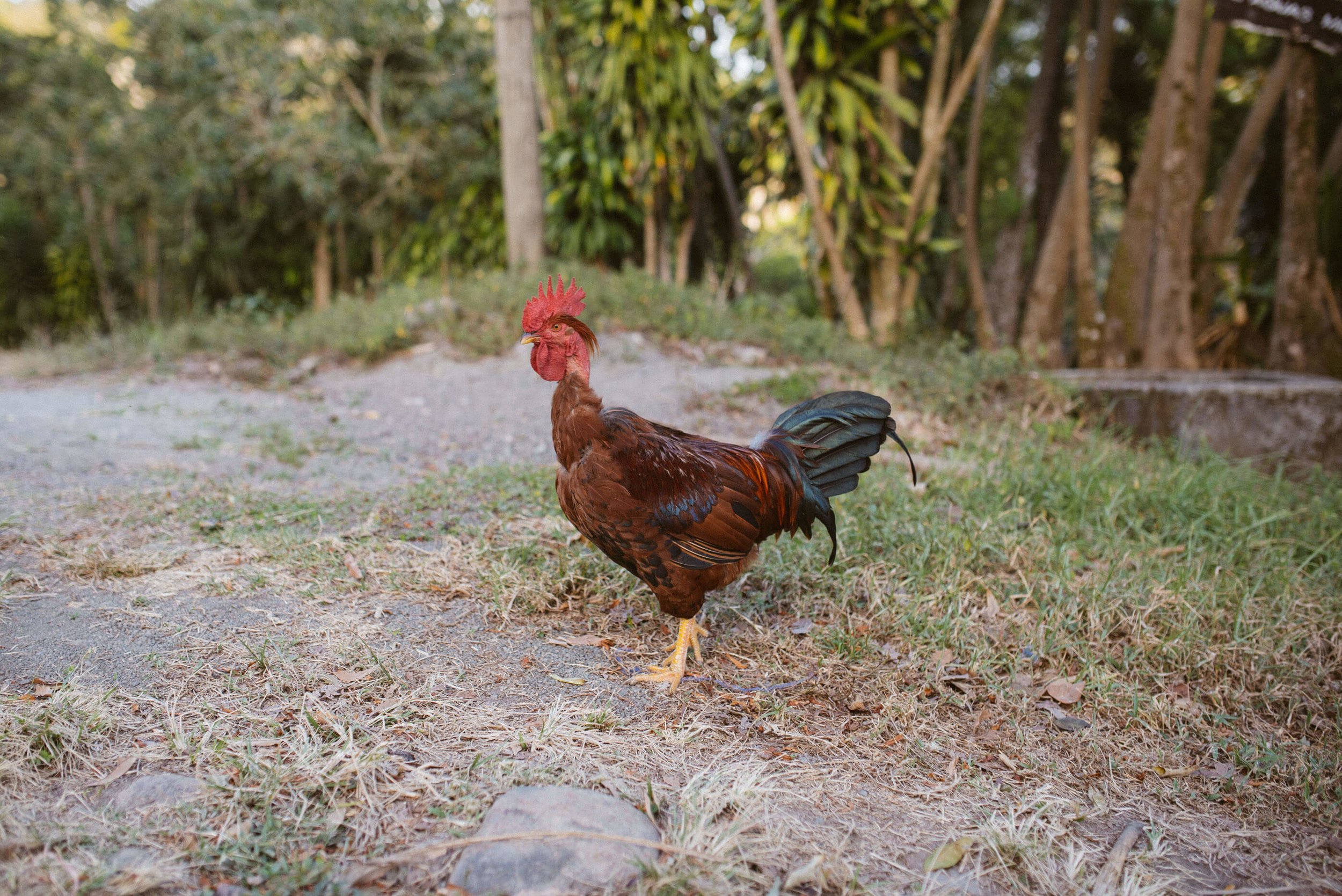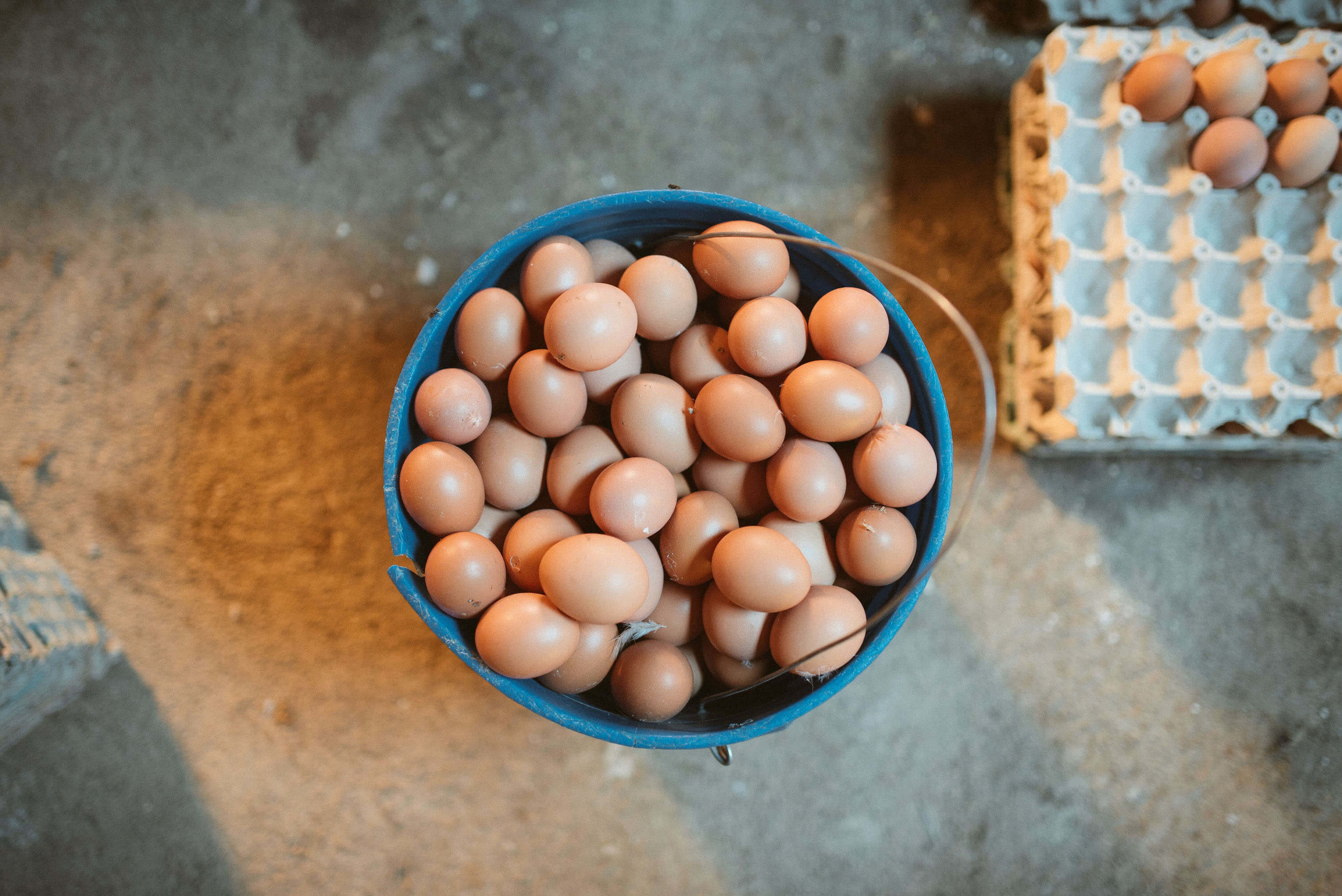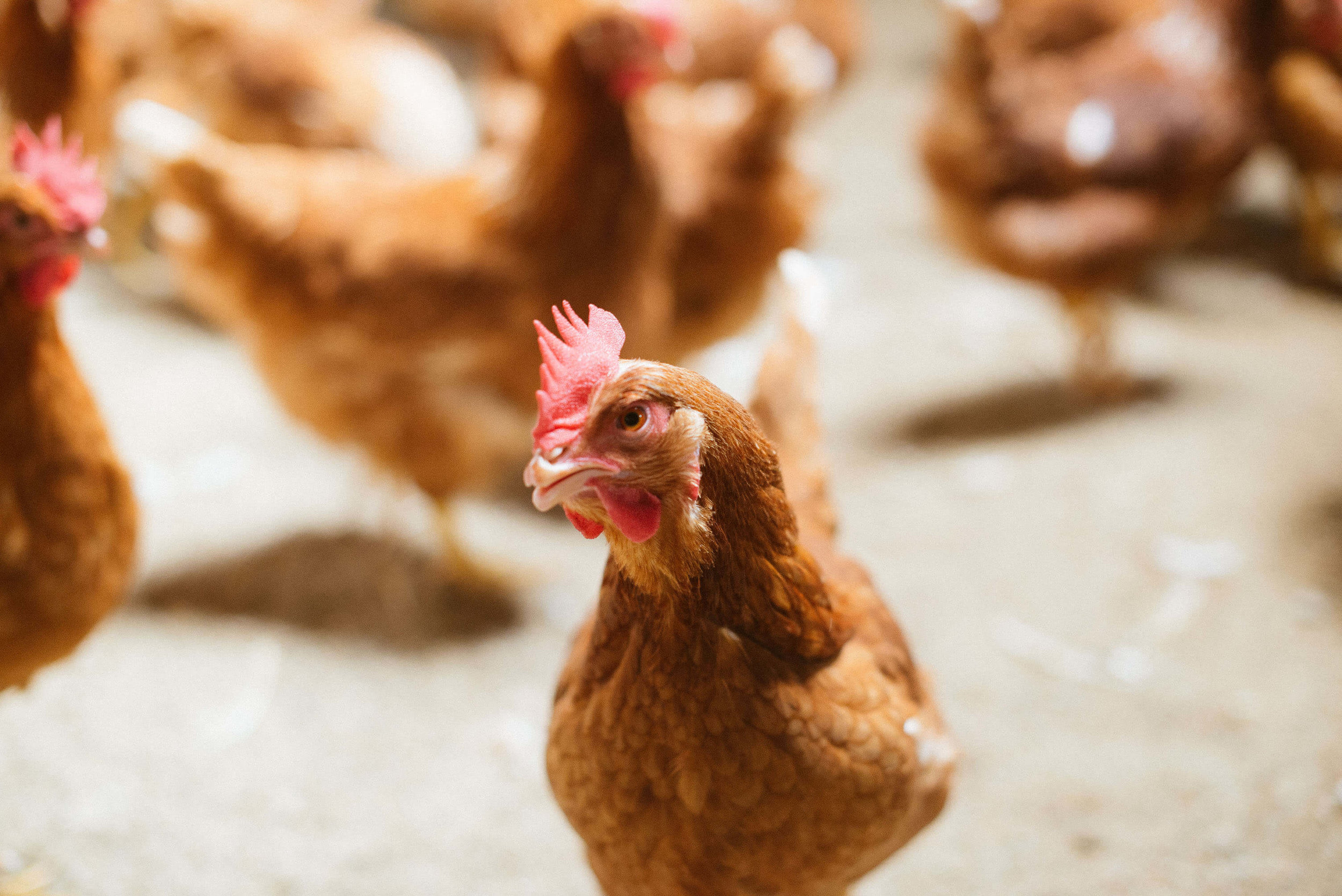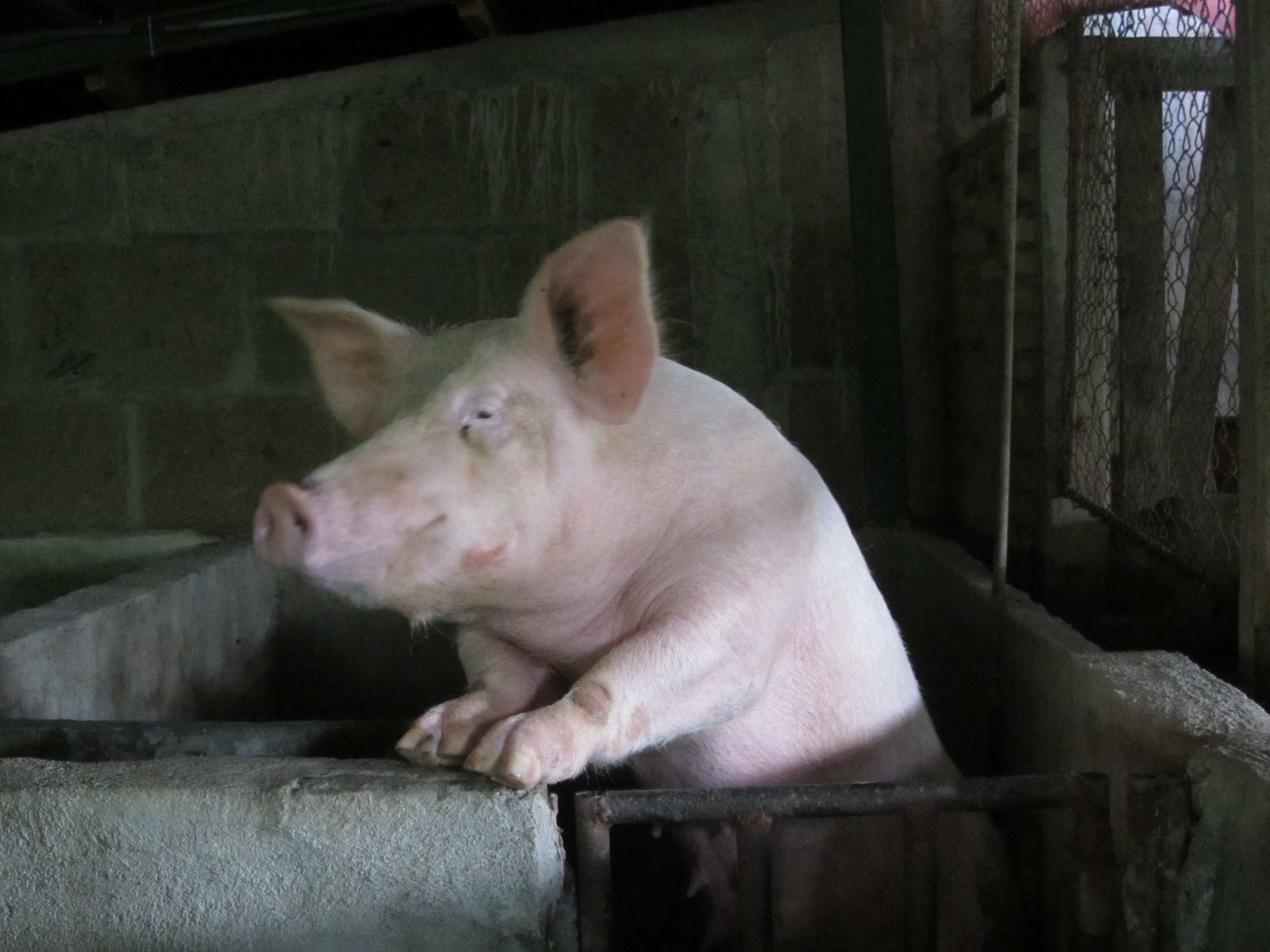OUR LIVESTOCK
Deforestation and methane gas pollution is a huge problem in agriculture, so much that the agribusiness industry is the leading cause of these human-made environmental disasters - even worse than the transportation industry. Much of this comes from the raising of livestock. Although we also raise livestock, we have found a way to do so while mitigating these harmful effects.
Chickens
We raise chickens mainly for their eggs, which we either sell or use in Roy's bakery or the restaurant. At the end of their lifespan, we sell their meat and we use their feathers in our organic lab. We use their manure for fertilizer.
Cows
We have about 150 head of cattle. When we bought La Hammonia, the bottom part had already been cleared for cattle grazing. We actually planted trees for the cattle, so our pastureland is shaded.
We use a method of cattle ranching called intentional or rotational grazing, which is a method of managing herds so that they graze on one specific area of land at a time. We rotate them from one pasture to the next in order to allow vegetation time to rest and regrow before it is grazed again. The goal is to retain a vegetative cover of all pastures at a given time, preventing soil degradation. This allows the vegetation to rebuild shoots and deepen root systems, resulting in long-term maximization of biomass production, minimization of parasites, and a reduced need for supplemental feeding. The intensive pasture ranching system entails that the cattle stay for one day a month on each pasture, so that piece of land is fertilized twelve times a year with cow urine and manure.
When we milk the cows, their manure is collected and used in our biodigestor. We use their milk mainly to make cheese and yogurt.
When we slaughter the cows, we use the first quality meat for the hotel and the second for the workers’ kitchen and Kühl houses. The bones are dried and used for compost, and the blood is collected to use as bacteria in the compost bins to accelerate its transformation into fertilizer.
Goats
We raise goats and sheep for milk and meat. We also manage them on the intensive pasture ranching system, and when we milk them we collect their manure for biogas.
Pigs
Our pigs are probably our best waste managers! We feed them all leftovers from the hotel restaurant - they eat very well! We sell piglets on the market; the unsold ones are raised as big pigs. The big pigs are either sold on the market or used to make sausage and meat for the hotel and the workers’ kitchen. We use the pig manure to make biogas and after that, it becomes fertilizer.
